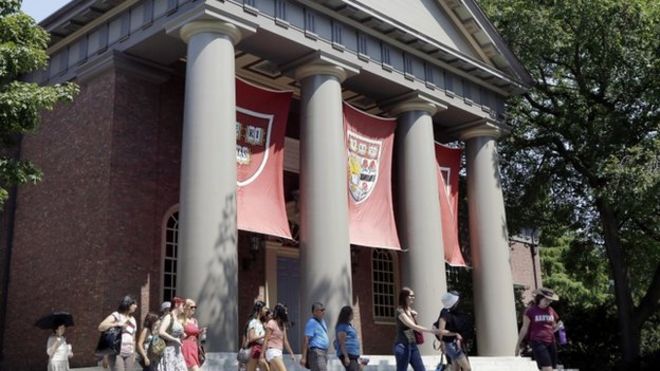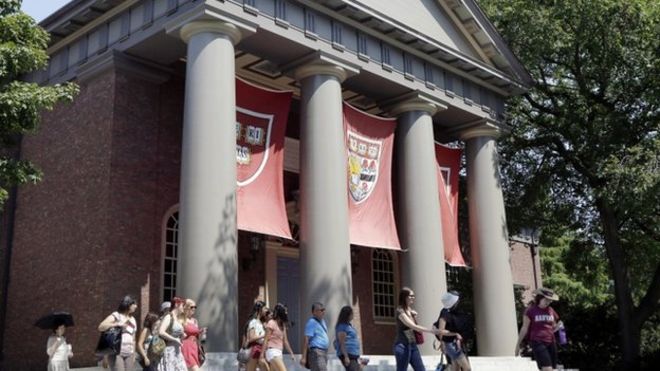
A project helping disadvantaged UK pupils go to US universities has seen undergraduates accepted for courses starting in September 2016 at all of the prestigious Ivy League colleges.
Between them, the 66 state-school pupils will receive scholarships worth $17m (£12m) from US universities.
The numbers of UK students in US universities has risen each year since tuition fees rose in England in 2012.
US ambassador Matthew Barzun praised the value of such shared networks.
Mr Barzun said that such educational exchanges between the US and the UK allowed students to see beyond unrealistic “exaggerations” and “caricatures” of each others’ cultures.
“It’s a chance to see each other in three dimensions, not in caricature form,” he told the BBC.
“It might not always be pretty, it’s not always perfect, that’s what makes the special relationship live.”
But the strength of the special relationship between the US and the UK depended on accepting differences and looking outwards to the world.
Mr Barzun said Churchill’s 1946 “sinews of peace” speech that introduced the phrase “special relationship” had been about the importance of international cooperation in difficult times.
“There is strength in diversity, there is a real cost to cutting connections and putting up walls,” said the ambassador.
Mr Barzun said cooperation did not mean always having to agree or be the same.
“One of my least favourite diplomatic expressions is ‘no daylight between us’,” he said.
“It’s usually said in an earnest tone.
“In most cases it’s a ludicrously high standard for cooperation and doesn’t account for what makes a relationship special.
“Think of two soldiers, shoulder to shoulder, there is plenty of daylight between them. Or FDR [Franklin Delano Roosevelt] and Churchill sitting on a bench, there is literally a space – and that daylight is healthy.
“We shouldn’t try and paper over little differences.
“There’s strength in that. That’s what networks look like.”
Mr Barzun also mentioned that when his term as ambassador finishes this year he will take back two favourite words from the UK to the US – “sorted” and “gutted”.
There are 10,700 UK students in US universities – up by about 16% since tuition fees were increased in England to £9,000.
But the project run by the Sutton Trust education charity wants these international opportunities to be available to poorer students and those from families where no one has previously gone to university.
Of those who will be starting in US universities this autumn, the Sutton Trust says, 83% will be the first generation in their family to go to university.
Sir Peter Lampl, founder of the Sutton Trust, said the scholarships meant that many of these students could graduate without any debts.
And he hoped more young people in the UK would “realise that a university education in America is well within their grasp”.
J Jeffry Louis, chairman of the US-UK Fulbright Commission, which supports the scheme, said: “This remarkable achievement demonstrates that American universities value the diverse talent, ambition and academic potential of the most deserving British state school students.
“Our special educational relationship crosses the Atlantic in both directions.”
An additional summer school project run by the Sutton Trust will take 150 state-school students, selected from 1,200 applicants, to visit US universities.


